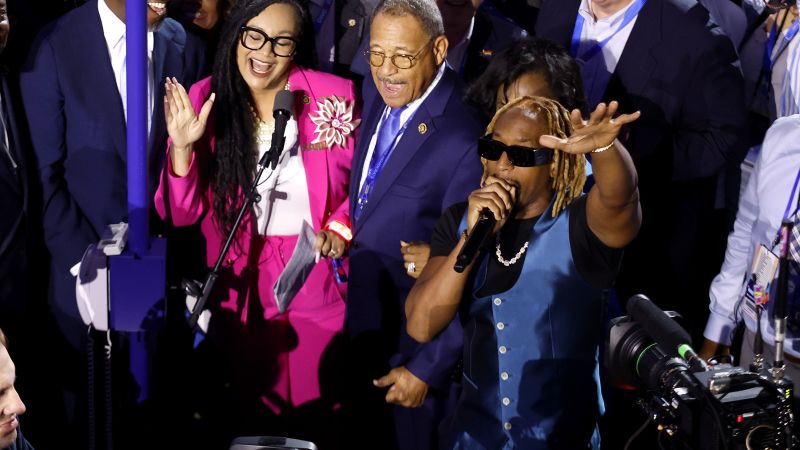In recent weeks, Kamala Harris has garnered significant attention and support as a presidential candidate, with some dubbing the phenomenon as “Kamalamania” or “Kamelot.” However, amidst the excitement and euphoria surrounding her candidacy, there is a lesser-known force propelling her campaign: “Black Joy.” This movement, led by Black artists, authors, and activists, emphasizes celebrating Black humanity through joy rather than trauma or oppression. Harris is tapping into this movement as a core aspect of her campaign.
Black Joy is difficult to define but is evident in events such as the Black Joy Parade, Juneteenth celebrations, and family reunions marked by happiness and cultural expressions. It was also showcased at the Democratic National Convention through enthusiastic performances and emotional responses to speeches by prominent Black figures. The movement represents a sense of hope and optimism among Black Americans, reminiscent of the excitement surrounding Barack Obama’s presidential campaign in 2008.
Harris’s campaign strategy incorporates elements of Black Joy, including her laughter and response to attempts to define her racial identity. Her laughter, often noted by commentators, reflects a history of Black laughter as a form of resistance against oppression and a rejection of stereotypes. Additionally, her handling of questions about her Blackness showcases a sense of confidence and pride in her identity without feeling the need to explain or justify it to others.
Harris’s multiracial background, claiming both Black and South Asian heritage, challenges traditional notions of racial identity and highlights the complexity of race in America. Despite attempts to question her Blackness by political opponents, Harris remains steadfast in her identity and refuses to be defined by others’ perceptions. This defiance is seen as a manifestation of Black Joy and a rejection of White attempts to control or define her racial identity.
As the election approaches, the question arises of how far Black Joy can propel Harris and whether it will endure in the face of challenges and setbacks. Recent polling data suggests strong support for Harris among Black voters, indicating a potential for her enthusiasm and support to translate into votes. The fear of a return to the racial tensions of the Trump era motivates many Black voters to support Harris, signaling a shift in the mood of Black America and a desire for change.
If Harris wins the election, it will represent a significant shift not only in the political landscape but also in the emotional well-being of Black Americans. In a time marked by racial injustice, a global pandemic, and social unrest, Harris offers a sense of hope and optimism through Black Joy. Ultimately, in an election where Black voters may play a crucial role in determining the outcome, Black Joy may prove to be Harris’s most powerful political asset.


